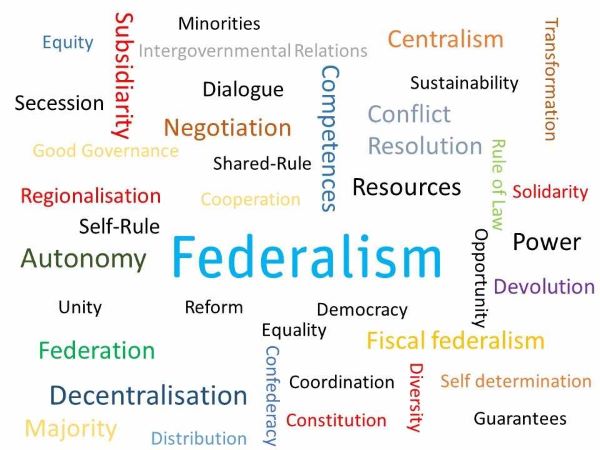Date : 22/11/2023
Relevance: GS Paper 2 - Polity - Role of Governor
Keywords: Article 200, Discretionary Powers, Constitutional Framework, Sarkaria Commission, Punchhi Commission
Context-
The position of governors in Indian states, a relic of the colonial era, has once again come under scrutiny, exemplified by recent events in Tamil Nadu, Telangana, Punjab, and Kerala. The recent dissatisfaction expressed by the Supreme Court highlights concerns over delays in the Governors' actions on Bills presented for assent by States.
Understanding the powers vested in Governors regarding Bills:
Governor's Alternatives under Article 200:
Article 200 provides Governors with four alternatives upon receiving a Bill from the State Legislature:
- Give assent to the Bill.
- Withhold assent, leading to the Bill's rejection.
- Return the Bill (non-Money Bill) for reconsideration.
- Reserve the Bill for the President's consideration.
Discretionary Powers:
The Supreme Court, as established in cases like Shamsher Singh (1974), emphasizes that Governors do not exercise discretion when withholding assent or returning a Bill. Their actions are bound by the advice of the Council of Ministers, as stated in Article 163, except in matters requiring discretion.
Withholding Assent Scenario:
The rare scenario of withholding assent may arise for Private Members' Bills or in cases where the incumbent government desires such action. However, the majority-holding council of ministers would typically prevent the passage of undesirable Bills.
Governor's Discretion:
Governors must reserve Bills reducing High Court powers or conflicting with Union laws. They may exercise discretion when they believe a Bill contravenes the Constitution, reserving it for the President's consideration. Notably, there's no constitutional time limit for Governors to decide.
Historical Perspective
Colonial Legacy
- The colonial legacy of the governorship in India has long been a point of contention. Originally intended to serve as the head of state in each state but appointed by the Union government, governors were expected to act as the president's analog at the state level.
- However, the practical reality has seen them function more as agents of the Union government, often acting as checks on popularly elected state governments.
Constitutional Framework
- A critical distinction between the president and the governor lies in their appointment and removal processes. Unlike the president, who is elected by the representatives of the country, governors are appointed by the Union government.
- Moreover, while the president can only be removed through impeachment, governors can be removed at the pleasure of the Union government. This asymmetry raises concerns about the governor's accountability and the potential misuse of their powers.
Predictions and Criticisms during the Constituent Assembly
- During the Constituent Assembly debates, concerns about the colonial hangover and the centralization of power were raised.
- Dakshayani Velayudhan and other members criticized the draft constitution for replicating provisions from the 1935 Act, emphasizing the need to break away from the British imperialist administration's legacy.
- However, these concerns were not adequately addressed, and the provisions relating to governors remained largely unchanged.
Ambedkar's Justification
- B.R. Ambedkar, while justifying the retention of existing provisions related to governors, argued that there was limited time to make changes to the Government of India Act, of 1935.
- He asserted that governors were meant to work with, not overrule, state governments. However, he did not address the potential scenario where governors might align more with the Centre's interests than the state's.
- As feared by critics, governors have often been accused of political maneuvering to serve the interests of the ruling party at the Centre.
Issues and Challenges:
- Governors have, in some instances, exercised discretion in returning Bills against ministerial advice, leading to concerns.
- The Supreme Court emphasizes the constitutional expectation of prompt decision-making, using the phrase "as soon as possible." Additionally, there are no specified procedures for public engagement during disagreements.
Committee Recommendations:
- The Sarkaria Commission (1987) suggests Governors' discretionary power is limited, except in rare cases. It recommends a maximum six-month period for the President to dispose of Bills.
- The Punchhi Commission (2010) proposes a six-month timeframe for Governors to decide on Bills, but these recommendations remain unimplemented.
The Way Ahead:
- Given the evolving scenario of Governors delaying decisions on Bills, the Supreme Court is urged to establish a reasonable timeframe. This approach aligns with the framers' intent and ensures the smooth functioning of federalism within the constitutional framework.
Conclusion:
In conclusion, the time has come to reevaluate and reform the role of governors in India's federal democracy. The colonial institution, though originally intended to act as a check on state governments, has often been criticized for overstepping its boundaries and serving the interests of the Union government. Rather than advocating for the outright abolition of the institution, a more pragmatic approach involves judicial intervention and, more importantly, constitutional reform. By making governors accountable to the state legislature, India can strengthen its democratic principles and ensure a more balanced federal structure. It is a crucial step towards aligning the institution of the governor with the evolving needs and aspirations of a vibrant democracy.
Probable Questions for UPSC mains Exam-
- Assess the discretionary powers of Governors in India's federal system, focusing on their role under Article 200. Analyze recent events highlighting concerns over Governors' actions on Bills and evaluate recommendations from committees like the Sarkaria and Punchhi Commissions. (10 Marks, 150 Words)
- Examine the historical legacy of Indian governors, tracing their colonial origins and concerns raised during the Constituent Assembly debates. Propose reforms and discuss the role of the judiciary in ensuring a more accountable and balanced governorship in India's federal democracy. (15 Marks, 250 Words)
Source- Indian Express







